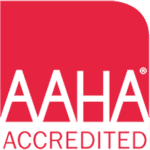

Puppy Wellness Care Nurturing Puppy Care in Boston, MA
We are thrilled to welcome your new furry friend to Back Bay Veterinary Clinic!
We’ve prepared this collection of information and links to help you settle into life with your new puppy. Please review this before your first appointment with us. We have extra time set aside during this appointment to answer all of your questions!

Veterinary Visit Checklist
Vaccines
- Bordetella - one oral vaccine, lasts for 1 year, generally given at 8 to 12 weeks old.
- DA2PP (Distemper, Adenovirus, Parvovirus, Parainfluenza) - series of injectable vaccines given every 2 to 4 weeks, with the last one given at 16 weeks or later.
- Rabies - one injectable vaccine, lasts for 1 year. Legally must be given between 12 weeks and 6 months old.
- Leptospirosis - series of 2 injectable vaccines, given 2 to 4 weeks apart. Often given in combination with DA2PP.
- Lyme - series of 2 injectable vaccines, given 2 to 4 weeks apart.
- Canine Influenza Virus (CIV) - series of 2 injectable vaccines, given 2 to 4 weeks apart.
Vaccines need to be boostered every 1 to 3 years ongoing. For more information about each of these vaccines and the diseases they prevent, please see our Vaccines for Dogs handout.
Deworming
- Your puppy will be started on the month preventative Simparica Trio, which will also serve as a dewormer. If for some reason your puppy is not started on this medication, your veterinarian may decide to treat with a standard prophylactic dewormer (for example pyrantel, Drontal or Panacur)
Preventative monthly medications
- Simparica Trio: oral tablet that prevents infection with heartworm, fleas, ticks, and GI parasites. You will give this once a month at home. (We recommend setting reminders on your phone or calendar.) Continue this lifelong, year-round!
- We will dispense 1 tablet at a time until your pet reaches final adult size, since it’s dosed based on weight class.
- If your puppy is particularly small (under 2.8 lbs), we will substitute Revolution topical liquid to give monthly for heartworm, fleas, and GI parasites. This does not include tick protection, so you’ll need to be vigilant about ticks until the puppy is a bit larger.
Preventative Diagnostic testing
- Two fecal tests at least 2 weeks apart to check for GI parasites.
- Blood test for heartworm and tick-borne diseases (called “4dx”) will be done at the first adult annual visit. We may recommend an earlier test around 7 months of age if your dog is from the Southeast U.S. or another region with high rates of heartworm disease. Annual heartworm tests are required to dispense heartworm preventative.
- Pre-anesthetic blood test is done before spay or neuter surgery to make sure your puppy is healthy enough to go under anesthesia.
Knowing what to buy for your new puppy can be difficult! This is not an exhaustive list, but a few specific recommendations that may be useful:
- Bowls: dishwasher-safe is best so you can clean them often.
- Leash: we recommend against retractable leashes for safety reasons; your puppy can run suddenly farther away from you than anticipated.
- Harness: recommended instead of collars for short-nosed breeds like the French Bulldog and breeds prone to collapsing trachea like the Maltese.
- Cold weather gear: if your pup is a short-coated breed, they will appreciate a jacket in the cooler Boston months. Booties can protect paws from de-icer on the sidewalks.
Along with trimming nails and giving preventatives, one of the most important routines to establish with your new puppy is brushing teeth. Check out this video demo for more tips on proper brushing technique. Aim for every day, but even twice a week is amazing!
It’s also important to select toys and chews that are safe for your puppy’s teeth. Remember that if the object, like a bone or antler, is harder than the tooth, the tooth is at risk of breaking every time the dog bites down on it. We extract many avoidable fractured teeth every year; keep your puppy’s teeth intact by choosing only toys that you can indent with your fingernail.
Even with the best dental care at home, most dogs - especially small breeds - will need annual anesthetic cleanings and oral health assessments and treatments to keep their mouths healthy, including the parts below the gumline that we can’t see. We will perform an oral exam every six months as part of your dog’s preventive care exam, and make individualized recommendations for when a cleaning is needed.
Back Bay Veterinary Clinic is a certified Fear Free hospital. We typically use a variety of treats and toys to make each visit a happy experience for your puppy; please let us know if your dog or anyone in your family has allergies.
You can take action to make each trip Fear Free before your puppy sets foot on the front steps of our clinic. Please review the following information to help make sure your puppy will be as happy to see us as we are to see them!
In the Fear Free Happy Homes content library, you can also find a collection of resources reviewed by board-certified veterinary behaviorists on topics such as crate training, house training, and nail trims for puppies - and check out this video for a more comprehensive how-to demo on nail trims. We know these are hot topics for all new puppy owners!

One of the questions we get most often is: what should I feed my puppy? You know that good nutrition is essential for proper growth and development.
In general, we believe in the quality control and research that goes into manufacturing the food at the “big three” companies: Royal Canin, Hills Science Diet, and Purina. However, there are a lot of other good foods on the market beyond these three - so many that it’s hard for us to keep up! So, it’s important for you to know what to look for when selecting a pet food. Keep in mind that small-batch isn’t necessarily better when it comes to food, and byproducts isn’t a dirty word!
In addition, we recommend staying away from grain-free diets for your dog until we know more about the emerging link between Boutique, Exotic, and Grain-Free diets and heart disease.
The microchip is a small, rice-sized transmitter that can be scanned by any vet or shelter and used to help reunite you with your pet in the case of accidental separation. It is usually placed under the skin at the time of spay or neuter but can be done during any appointment.
If you plan to travel abroad with your dog, we recommend placing the microchip before the rabies vaccine due to international requirements of some countries.
If the microchip is placed in our clinic, we can register it for you at HomeAgain using your contact information on file. If your pet already has a microchip placed by the breeder or shelter, make sure you register it. It’s important to keep your contact information up to date with the registration company, since that is how you will be contacted if your pet is found!
If you’re not sure whether your pet’s microchip is registered already, you can use the free universal microchip lookup tool to find out. When choosing where to register your microchip, we recommend using one of the companies that participate in that tool.
We whole-heartedly recommend pet insurance. The independent Pet Insurance Review site may be helpful in comparing plans. There is also this helpful chart from early 2020 outlining the details of insurance policies from a number of leading companies. We recommend selecting three insurance companies to get quotes from. Be sure to read the fine print!
While you research and select an insurance company, we recommend enrolling in a free trial of Trupanion pet insurance - there is no auto-renewal (meaning they don’t take your credit card information), but it will provide coverage with no waiting period for 30 days while you consider your options. Ask at checkout if you would like us to send you the link for this trial, and be sure to enroll within 24 hours of your exam.
Everyone wants their new puppy to have fun! But when is it safe?
After your puppy’s first set of vaccines at the vet, you can walk around the city together without too much concern for disease transmission, although it’s still a good idea to wipe off the feet when you come home.
You can start socialization as soon as possible with dogs that you know are healthy and vaccinated - for example, pets who live with your family and friends. Fear Free Socialization Bingo is a fun way to ensure that your puppy gets positive exposure to a variety of stimuli. However, free play at the dog park should wait until two weeks after your dog’s final DA2PP vaccine, so around 18 to 20 weeks old.
We follow AAHA Guidelines for spay and neuter timing in general, but each individual puppy and family has circumstances that we will consider and discuss in reaching the best decision.

If you’re thinking about hiring someone to help take care of your new furry family member, it’s natural to have some anxiety about the process. The American College of Veterinary Behaviorists has a helpful guide on how to hire a dog trainer.
In general, choosing a trainer is a combination of looking at certifications and speaking with the trainer directly. There are online directories to help you find trainers who have certifications from the highly regarded Karen Pryor Institute (KPA-CTP is the qualification) or from the IAABC. Trainers that are Fear Free certified and/or Pet Professional Guild members are also likely to adhere to evidenced-based approaches, as are people with the certification CPDT-KA. As a Fear Free practice, we do not recommend anyone that uses so-called balanced training, e-collar training or other positive punishment/negative reinforcement approaches. They are not supported by the current science, even when recommended by highly credentialed trainers or behaviorists.
We have lists of some local pet sitters, dog walkers, and boarding facilities available but cannot make any guarantees of quality, for liability reasons. We hope you understand!

Emergencies
While some illnesses can wait, others should be seen right away. Please call and bring your pet in immediately, either to us or to a local emergency clinic (see below for a list) if they are showing any of the following signs of illness:
- Sudden collapse
- Difficulty breathing
- Gray/purple/white gums
- Seizure
- Major trauma
- Actively bleeding open wound - enough to soak through a paper towel
- Allergic reaction - facial swelling, not just itching
- Toxin ingestion (see below)
- Foreign body ingestion
- Inability to urinate / defecate
If your puppy has ingested something potentially toxic, we recommend contacting the ASPCA Poison Control Hotline at (888) 426-4435. If necessary, they will give you a case number that you can reference when you follow up with any veterinary hospital. You can also search the ASPCA website to find out what plants and food items are toxic.
Some of the most common poisonings we see are from the following items, but this is by no means a complete list:
- Chocolate
- Grapes / raisins
- Garlic / onions
- Marijuana
- Human medications, including NSAIDs like ibuprofen
- Xylitol, an artificial sweetener
If your pet has a serious emergency outside of our normal business hours, please bring them to one of the following locations:
- Angell Animal Medical Center 350 S. Huntington Ave, Jamaica Plain, MA 02130 (617) 522-7282
- BluePearl - Charlestown 56 Roland St, Boston, MA 02129 (617) 284-9777
- Veterinary Emergency Group (VEG) - Boston 312-316 Stuart St, Boston, MA 02116 (617) 762-0001
If you’re outside of Boston, other local emergency hospitals include:
- Massachusetts Veterinary Referral Hospital, 20 Cabot Rd, Woburn, MA 01801 (781) 932-5802
- BluePearl - Waltham, 180 Bear Hill Rd, Waltham, MA, 02451 (781) 684-8387
- Veterinary Emergency Group, 165 Needham St, Newton, MA 02464 (617) 729-4446
- Foster Hospital at Tufts University, 200 Westboro Rd, North Grafton, MA 01536 (508) 839-5302
- Tufts VETS, 525 South St, Walpole, MA, 02081 (508) 668-5454
- VCA South Shore, 595 Columbian St, South Weymouth, MA, 02190 (781) 337-6622
If our clinic is closed, and you’re not sure whether your puppy’s emergency is serious enough for a visit to the emergency clinic or whether it can wait until the next day, you can call us at (617) 247-2273 and speak with GuardianVets, our after-hours triage service staffed by licensed veterinary technicians.
